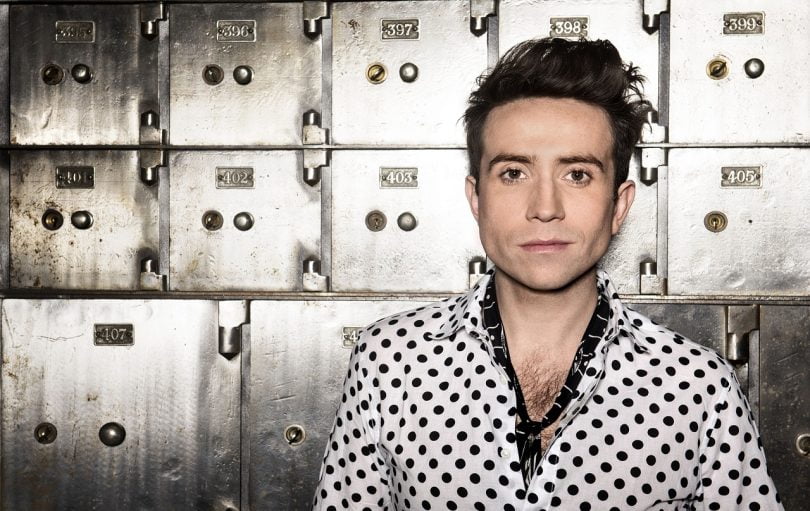The RAJAR radio ratings for the last quarter of 2015 came out this week, and it indicated that radio as a medium in the UK continued to be resilient, attracting 48.2 million listeners (90 per cent of the population). RAJAR data indicated that 53.5 per cent of listeners were listening to BBC services, compared to 44.1 per cent for commercial radio.
A few thoughts on #RAJAR including, yes, @RadioX: https://t.co/Gg6suc5ci2 pic.twitter.com/ZrGNLjh8cf
— Adam Bowie (@adambowie) February 4, 2016
But as gains continue to be made for BBC services on a national level (Radio 2 and Radio 4 had significant gains as 6 Music becomes the most listened to digital radio station in the UK), there are still some unanswered questions as to how younger audiences, and the new media marketplace, effect engagement and outreach with that population. Those questions particularly come to light in the case of Radio 1.
Gains and losses
Although Radio 1 as a station lost some listeners in the past quarter (10.33 million versus 10.56 million in the third quarter), the station’s Breakfast Show, presented by Nick Grimshaw, had gained 200,000 listeners (6.37 million versus 6.17 million in the last quarter). Yet, the programme is third when it comes to BBC national output at Breakfast, behind Radio 4’s Today programme and Chris Evans’ Breakfast Show on Radio 2.
RAJAR: London stations & national brands https://t.co/sXzr9r19Vv pic.twitter.com/U2KhBJnmvS
— RadioToday UK (@RadioToday) February 4, 2016
The show’s digital offerings, particularly on Twitter, Facebook and Tumblr, keep listeners engaged about various content, and hits for some interviews are featured on Radio 1’s social feeds as well as YouTube and its channel on the iPlayer, trying to complement the rest of the output made available.
One of our favourite InstaGrim Booth pics of all time! Tuna and Grimmy ? pic.twitter.com/TvCAEepWHd
— BBC Radio1 Breakfast (@R1Breakfast) February 3, 2016
Lorraine Kelly: “The funniest and most fabulous thing I have ever ever seen!”Chris Stark: “This is actually mad. How…
Posted by BBC Radio 1 Breakfast Show on Friday, January 29, 2016
Indeed, Ben Cooper, the controller of Radio 1 (and its sister station 1Xtra), said he had been delighted with Grimshaw’s increased listenership as well as digital sharing.
“It’s fantastic to see Nick Grimshaw and the Radio 1 Breakfast Show reach even more young people with over 200,000 new listeners tuning in, introducing the next generation of audiences to the BBC,” Cooper said as quoted in a report from the Radio Today web site. “We also have record numbers of young UK audiences watching and sharing Radio 1, through our YouTube and iPlayer channels.”
Entering a crossroads
While the radio industry itself tries to figure out how to engage younger audiences in the digital age, these ratings appear to represent Radio 1 at a crossroads, trying to play the delicate balance between engaging listeners on the most intimate of mediums, while gaining audiences on the most public of platforms.
The BBC Trust has been trying to have Radio 1 target a youth audience and be a voice not just for music, but youth culture in the UK. It has been successful to the point of Radio 1 becoming a truly youth focused brand in a multimedia age, and raising awareness about the role of the BBC itself as a public broadcaster focusing on younger audiences, and Nick Grimshaw, one can argue irrespective of whether one listens to his show, can certainly be credited to helping that.
Yet, the bigger question for Radio 1 is how to keep the digital audience happy without alienating its core audience – listeners. Alec Feldman, writing for Kettle a couple of weeks back, said that Radio 1’s new music and content focused remit would serve it well as younger audiences get music and content through different means, and that hits jukeboxes that become the basis of the success of commercial stations would become null and void.
Indeed, because of the status Radio 1 has, the focus on the ability to have this new music available, and to document the events that are at the centre of the culture of the young, through Newsbeat, the Stories strand or other means, is imperative for the BBC to engage with younger audiences, and to be a stepping stone to other services offered.
It is a question that won’t be solved overnight, but it is something everyone at Radio 1 will be asking – how do you solve that delicate balance of online audiences and listeners?
The answer, no matter if it’s at the centre of a dial or the click of a button, will have implications for not just how the BBC engages with younger audiences, but how one of Britain’s biggest youth culture brands (and most loved mediums) will see its future.
What do you think? Have your say in the comments below!









